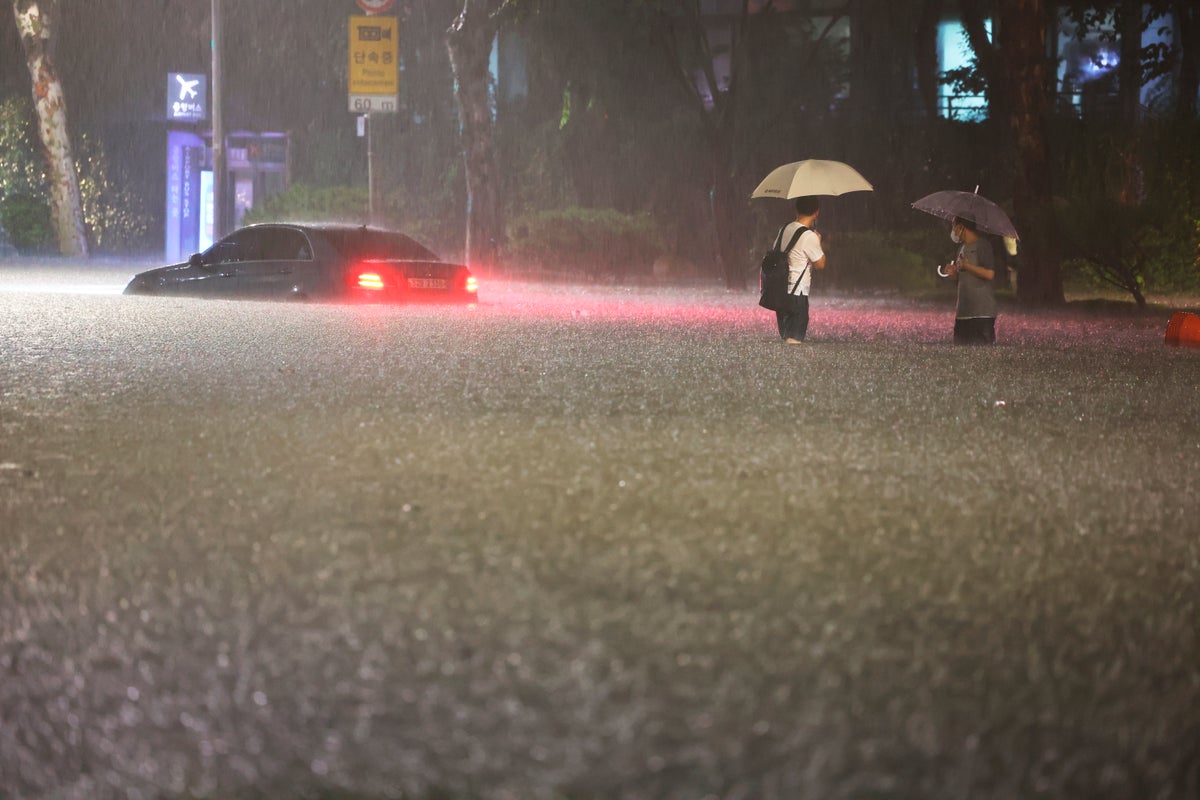
Heavy rains drenched South Korea's capital region, turning the streets of Seoul's affluent Gangnam district into a river, leaving submerged vehicles and overwhelming public transport systems. At least seven people were killed and six others were missing.
Commuters were slowly returning to work Tuesday morning after emergency crews worked overnight to clean up much of the mess. But there were concerns about further damage as torrential rain was forecast for the second day in a row.
While most of the Seoul metropolitan area’s subway services were back to normal operations, around 80 roads and dozens of riverside parking lots remained closed due to safety concerns.
President Yoon Suk Yeol had called for public employers and private companies to adjust their commuting hours and urged aggressive action in restoring damaged facilities and evacuating people in danger areas to prevent further deaths.
The rain began Monday morning and intensified through the evening hours. Nearly 800 buildings in Seoul and nearby cities were damaged while more than 400 people were forced to evacuate from their homes, the Ministry of the Interior and Safety said.
Rescue workers failed to reach three people who called for help before drowning in a basement home in the Gwanak district of southern Seoul Monday night. Another woman drowned at her home in the nearby Dongjak district, where a public worker died while clearing up fallen tires, likely because he stepped into waters electrified by damaged power lines, according to the ministry.
Two people were found dead in the debris of a collapsed bus station and a landslide in the nearby city of Gwangju.
The country’s weather agency maintained a heavy rain warning for the Seoul metropolitan area and nearby regions on Tuesday and said the precipitation may reach 5 to 10 centimeters an hour (2 to 4 inches) in some areas.
More than 42 centimeters (16.5 inches) of rain were measured in Seoul’s hardest-hit Dongjak district from Monday to 9 a.m. Tuesday. The per-hour precipitation in that area exceeded 14 centimeters (5.5 inches) at one point Monday night, which was the highest hourly downpour measured in Seoul since 1942.







